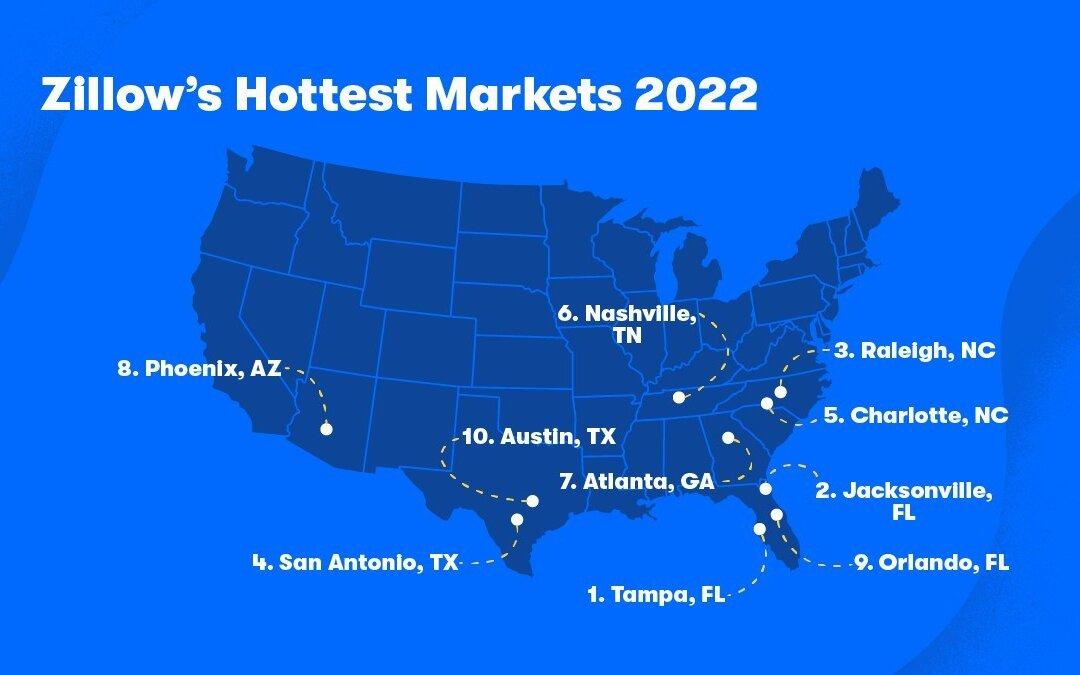The hottest housing markets of 2022 will be spread across the Sun Belt for the second year in a row, with Tampa topping the list, predict experts with online real estate giant Zillow.
Rounding out the Top 10 super-hot home-buying markets are Jacksonville, Raleigh, San Antonio, Charlotte, Nashville, Atlanta, Phoenix, Orlando and Austin.
With far more buyers than available homes, those areas should be among “the most competitive in the U.S.,” the Seattle-based company’s research suggests.
Home shoppers in those markets will face “strong competition, rising prices and limited inventory that will be snatched off the market quickly,” Zillow experts wrote in the report.
Tampa tops the list “due to a combination of strong forecasted home-value growth, a thriving job market, relatively scarce and fast-moving inventory, and demographics that indicate a good number of potential buyers,” according to the report.
So anyone thinking of buying in Tampa would be wise to do it quickly, experts say.
The mid-Florida metro was fourth-fastest when it came to rising home values last year. This year, price are expected to shoot up there faster than anywhere else in the nation.
“Home buyers are attracted to markets in the Sun Belt that offer relative affordability, fast-growing economies and weather that allows them to enjoy the outdoors year-round,” says Zillow economist Alexandra Lee.
“Across the board, sellers will remain in the driver’s seat, but especially so in the hottest markets. Buyers should be ready for strong competition for homes, which means bidding wars and homes flying off the market only days after they are listed.”
The remaining metro areas in the Top Five—Jacksonville, Raleigh, San Antonio and Charlotte—have a combination of factors that put them on the hottest markets lists.
Experts predict strong home-value growth, high job growth, and plentiful buyers in each of those areas of the country.
“Additionally, these markets have historically not been particularly sensitive to rising mortgage interest rates or a slowing stock market, two risk factors for housing and the economy overall,” Zillow’s report noted.
Raleigh bumped up from third-fastest in home-value growth last year, to second in 2022; Jacksonville’s rising home prices jumped from seventh to third.
The fastest-growing markets in 2021, Austin and Phoenix, are expected to drop to seventh and eighth, respectively, this year, Zillow predicts.
Across the country, anyone looking to sell a home stands to do well. Economists are forecasting 14.3 percent home-value growth across the nation through November.
In the Top 10 Hottest Markets, home values are predicted to grow even faster. Tampa home values are predicted to escalate by a staggering 24.6 percent between now and November, Zillow’s researchers estimate.





